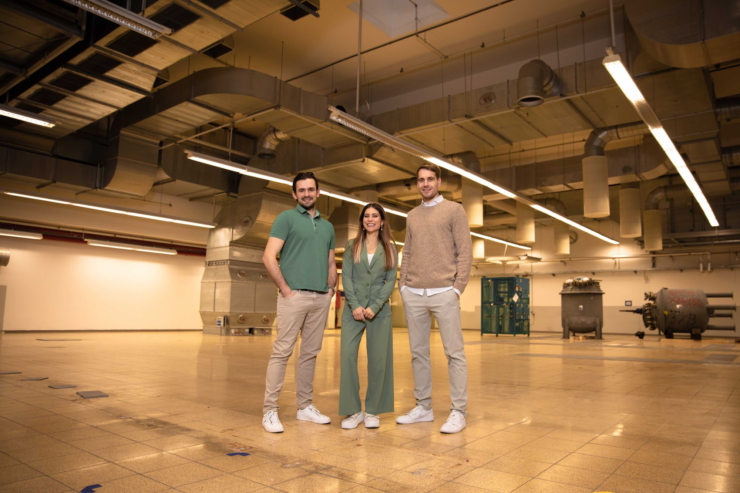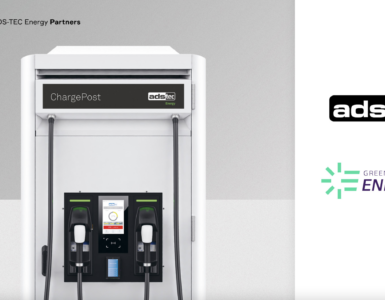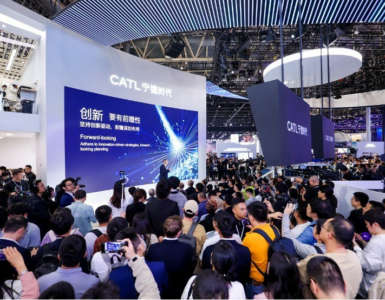cylib, the battery recycling startup revolutionizing the electric mobility industry, is today has raised €8 million in a seed extension round, led by World Fund.
cylib, the battery recycling startup revolutionizing the electric mobility industry, is announcing that it has raised €8 million in a seed extension round, led by World Fund, Europe’s leading climate tech VC. The entrepreneurial European VC, 10x Founders, backed by a venture network of 200 founders, participated as a co-investor.
Existing investors VSquared Ventures and Speedinvest also joined, along with business angels Kai Hansen and Karim Jalbout, to bring the total seed round amount raised to €11.6m.
cylib has developed a process that enables the recycling of lithium traction batteries, such as those used in electric vehicles (EVs). The startup recovers raw materials during the recycling process, reaching a recycling efficiency of 90%.
🔥 What about we co-host a webinar? Let's educate, captivate, and convert the battery economy!
Batteries News is the global go-to online magazine for the battery industry, we can help you host impactful webinars that become a global reference on your topic and are an evergreen source of leads. Click here to request more details
This drastically reduces the carbon footprint of the whole battery value chain, whilst also reducing the need to mine additional raw materials, helping to make the electric mobility industry more sustainable. cylib was spun out of RWTH Aachen University and its proprietary technology is now patent pending.
Lilian Schwich, CEO and co-founder of cylib, said:
Since I was a student I considered recycling a powerful tool to reduce the significant environmental impact caused by raw material extraction.
“Our process recovers all raw materials, including valuable elements such as lithium, cobalt as well as graphite, which are simply disposed of in other processes.”
The missing piece of the puzzle in e-mobility
For EVs to be a plausible alternative to fossil fuel-emitting vehicles, their use cannot entail switching dependence to another scarce resource. Lithium battery recycling has the potential to reduce the depletion and cost of raw materials significantly, as well as reduce the emissions from the production of lithium-ion cells.
Yet, conventional methods of battery recycling are inadequate – leading to low rates of recycling efficiency which can’t keep up with growing demand for EVs. In comparison, cylib’s method utilizes a water-based process for lithium and graphite recovery, which reduces the use of additives and acids drastically.
The total addressable market for cylib’s battery recycling technology is immense, given the need to transition to electrify all forms of transport over the next two decades. According to Fraunhofer ISI, Europe needs approximately 420,000 tonnes of EV/mobility battery recycling by 2030, and 2.1 million tonnes annually by 2040 alone to keep up with demand for EVs. This will only expand as uptake continues to rise exponentially, with Europe seeing a 19% increase in personal ownership of EVs in 2021 alone.
Craig Douglas, Partner at World Fund, said:
Society is slowly weaning itself off dependence on petroleum-based cars and motor vehicles and the industry is transitioning to electric modes of transport.
“But, if we don’t find a solution to sustainable battery recycling, we could squander the climate gains that EVs offer. cylib’s technology is the missing piece of the puzzle and their technology will deliver real climate gains, by enabling the sustainable recycling of batteries and by cutting down on the damaging mining of primary materials.”
World Fund only backs entrepreneurs building climate tech solutions that have the potential to save at least 100 megatonnes of CO2 every year, which it believes cylib can achieve thanks to this technology.
New European regulation set to tighten battery recycling
In 2024, a number of new EU regulations are expected to come into force, which will tighten the obligation of electric vehicle manufacturers and resellers to recycle batteries at the end of their natural lifespan. These upcoming laws will require a huge expansion of the market and technological innovation in the battery recycling vertical, of which cylib is poised to take significant market share.
cylib’s current customers include electric vehicle makers, battery manufacturers, and raw materials processors in the business of acquiring reprocessed raw materials.
Paul Sabarny, cylib co-founder and Chief Technology Officer, said:
cylib’s technology, which was spun out of the prestigious RWTH Aachen University, has been honed and refined to ensure that the raw materials we recover in the battery recycling and redeployment process are as high quality as feasibly possible.
“This ensures the climate effect of our offering, whilst also providing compelling efficiency metrics and ROI for the numerous EV manufacturers who’ve already placed their confidence in cylib’s proprietary technology”.
Dr. Gideon Schwich, cylib co-Founder and Chief Operating Officer, said:
The upcoming changes of EU regulations on battery recycling will be pivotal, if we are truly to seize the decarbonising potential of switching away from fossil fuel emitting vehicles, transitioning en masse to EVs.
“Only if all raw materials used in batteries for EVs are able to be safely and sustainably recycled will we establish a true circular economy, powering the mobility of tomorrow”.
READ the latest Batteries News shaping the battery market
Press release February 15th 2023, Aachen, Germany, February 15, 2023








